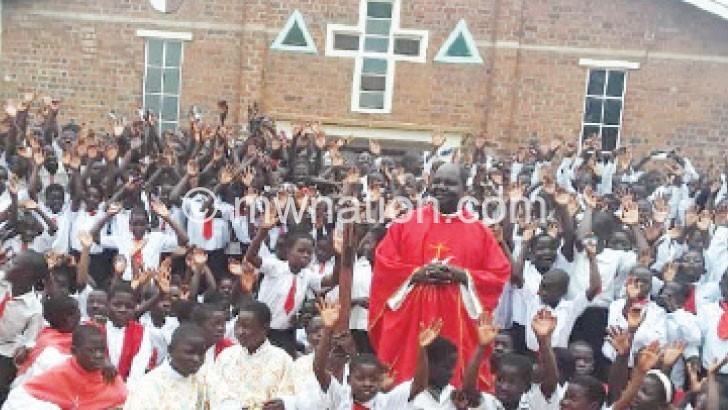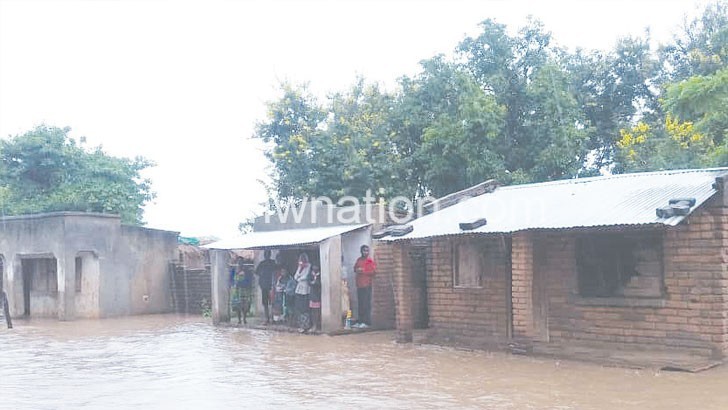Through disasters, God settles his issues

In his tribute to the late Ethel Mutharika, musician-cum-politician Billy Kaunda asks whether God was awake when the former First Lady was dying.
Kaunda wonders why an almighty and loving God would allow the death of a woman who dedicated her life to serving the poor and orphaned children.
He concludes that Mutharika’s death was a spell of doom for thousands of people whose livelihoods she supported.
While some believers argue that such a dirge sounds rebellious to the creator’s decision, Kaunda was only trying to relive what the people of Joppa did when Tabitha (also known as Dorcas) died.
Tabitha, whose story is found in Acts 9: 36—43, was a widow and a servant of the Lord who used her own resources to make garments and tunics for the poor and other widows.
She had a significant ministry of charity and care for the poor because she is characterised as being “full of good works and acts of charity.”
So just like her, the late First Lady spent part of her time cheering the sick and reaching out to the poor.
It is only proper, therefore, that one should ask why God allowed Tabitha and Mutharika to die while leaving behind countless orphans and widows in destitution.
Around the world, death and other disasters have left families destitute after being robbed of breadwinners and precious property.
This raises the question as to why God, who is touted as loving and almighty, would allow death or disaster to befall his own people. When we consider any major natural disaster such as the Phalombe avalanche (napolo), we naturally ask: was God awake when this was happening?
Esther Muwamba, who lives in Blantyre, argues that instead of trying to find answers to the question ‘why does God allow disasters?’, people should ask why God is sparing the lives of ‘murderers, thieves and prostitutes who don’t serve him.’
“Some rich people kill to get even richer. Others use charms and they keep on getting richer while the faithful poor getting on poorer and poorer. Somebody has prayed to God for years, asking for a child, but never gets any, while prostitutes can even bear twins without praying?
“Does that mean God doesn’t listen to some people’s prayers?” asks Muwamba.
But a student at the Polytechnic, Shadreck Ngwaya, says God does not work like a police officer going about stopping accidents or disasters from happening and, therefore, cannot be blamed.
However, Pastor George Chiwaya of the Chiwembe Assemblies of God Church in Blantyre says God is responsible for most of the earthquakes and other problems the world has witnessed.
Chiwaya says much as he is loving, God is just, such that he would not let evil-doers scot-free as that would mean condoning sin.
“But the goodness is that God doesn’t strike before firing a warning shot. Even today, God is speaking through many prophets, but people don’t want to listen. So, what do you expect him to do other than send a crisis, which can help bring his people in line with His will?
“In fact, the Bible recommends corporal punishment for those who transgress. But our very presence today signifies how loving God is because if we are to be fair and just, humanity doesn’t deserve life but death, which is the wage for sin,” he said.
But in his 2007 book titled Why Does God Allow Natural Disasters?, British writer and Christian broadcaster David Pawson disputes that God is ‘all-loving and almighty.’
Pawson says the statement can be misleading to apply to God because people interpret it in a sentimental rather than a scriptural connotation.
He argues that after critically going through the Bible, his understanding is that God “is not necessarily loving as some preachers would want to paint him to be.”
“I think it is because we have fallen for the temptation of telling people what they want to hear rather than…the truth. The Bible talks very little about the love of God and that that love was never talked about in public,” he says.
But like Chiwaya, Pawson also attributes all the natural disasters that are claiming lives of people across the world to the creator.
“As I have studied my Bible, I have come to the conclusion that the God I know loves righteousness more than people. That may come as a shock to you, but you go into your Bible and see if it is true. When he has to choose between sacrificing righteousness or sacrificing people, he chooses people,” he says.
Pawson cites the story of Noah and the flood as a classic example of God loving righteousness more than people.





